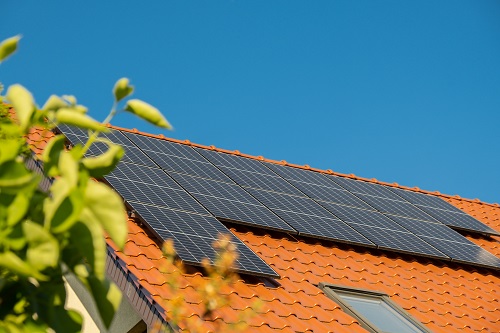
Many consumers are embracing solar energy to help reduce their power costs and produce greener energy. But before you sign up for a solar deal, read these tips from Consumer and Business Services (CBS) so you know your rights and what to expect.
Do your research
Take the time to research and see what would suit your needs best. Check independent reviews about the company and products. Consider the power and money saving claims by retailers, and the likely payback time, to see if the cost savings stack up.
Solar panels
Solar panels use sunlight to generate renewable electricity and can help reduce energy bills. The amount of electricity generated depends on things such as the weather and the number, size, quality and angle of panels.
Weigh up the total cost and the value of rebates and the feed-in tariff for excess electricity you feed into the grid.
Solar batteries
Solar batteries can store energy from your solar panels. Whether it’s cheaper to use stored electricity from your battery or from the electricity grid will depend on the time of day and electricity tariffs in your area.
To decide what size battery is right for you, check the 'usable capacity'. This may be less than the battery’s total capacity.
Some battery systems can also power your home during a blackout, so if you want this function check with the retailer before you buy.
Quotes and the contract
Get itemised quotes from several installers and make sure each quote includes things such as:
- relevant specifications
- any building approvals
- requirements for equipment and connecting to the electricity grid
- all costs for the purchase and installation plus grid connection
- proposed installation start and completion dates.
To find an installer visit the Clean Energy Council website.
Ensure the tradesperson has the correct licence by checking their details on the SA licence register. A solar installer must have an electrician’s licence unless structural building work is involved (e.g. reinforcing roof framing), in which case a builder’s licence would be required.
Before signing a contract, check the terms and conditions match everything the salesperson told you. Check there’s a clear start and finish date and what happens if the completion date is missed.
Payment
If the total cost is $12,000 or more, the law allows a maximum deposit of $1,000. Otherwise, no maximum deposit applies, however a 10% deposit may be reasonable. Get a receipt for all payments made.
Cold calls and door to door sales
If an energy marketer approaches you by phone, at your door or in a shopping centre, you might be tempted to sign up on the spot. But it’s often better to take your time and do your own research.
If the contact is unsolicited, by law you get a cooling off period of 10 business days so you can cancel the contract if you wish. You also have the right to cancel within three or six months if the supplier hasn’t met certain obligations.
Virtual Power Plants
Virtual Power Plants (VPP) can network your solar system with other households, so they all work together like a single power plant. The VPP operator can release your battery’s stored energy when demand is high or stop drawing stored energy when demand is low, which helps bring stability to the system. There are usually incentives offered to join a VPP, such as a discount on the purchase price of a new battery or a higher feed-in tariff.
Before joining a VPP, consider the potential cost benefits versus the drain on your stored energy, and whether you’ll need to buy back electricity. Also consider future charging needs – e.g. if you buy an electric vehicle.
More information
For more information visit cbs.sa.gov.au/solar.
If any concerns arise, read about your rights with consumer guarantees and warranties and consider if you need help solving a problem with a business.


